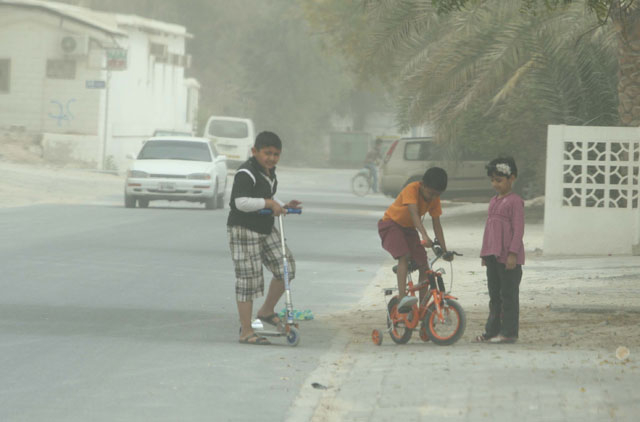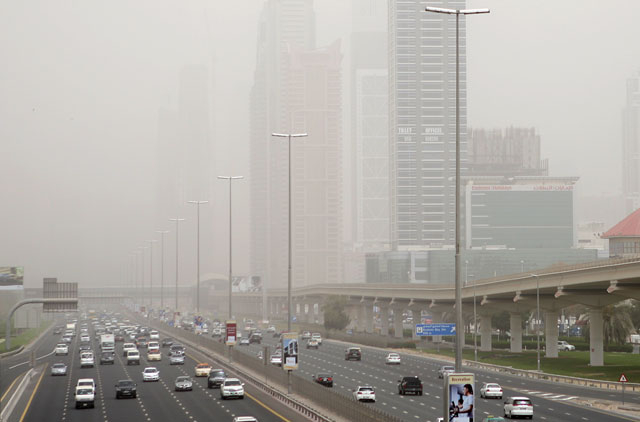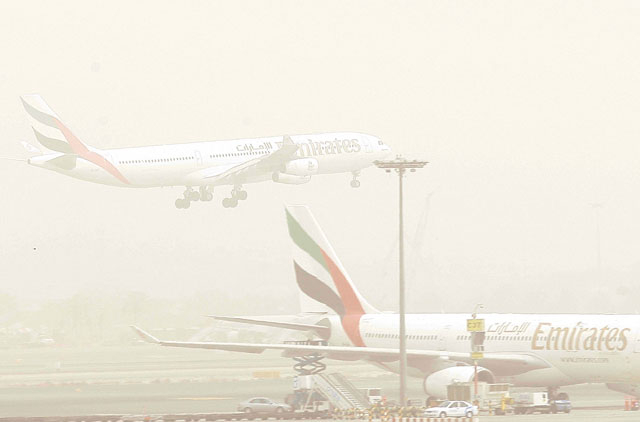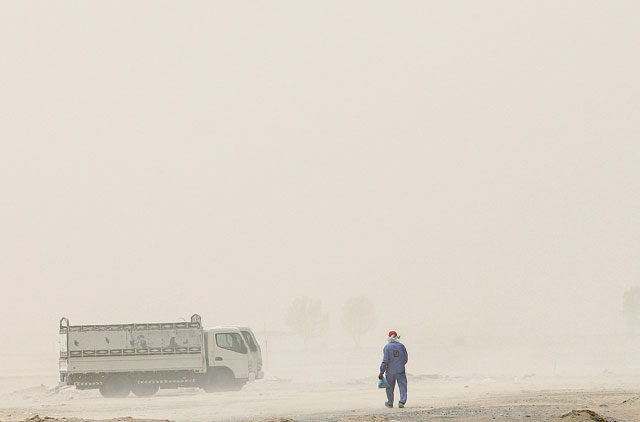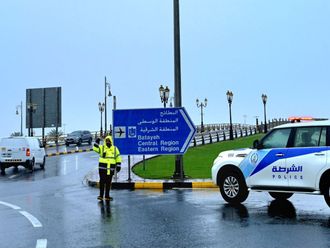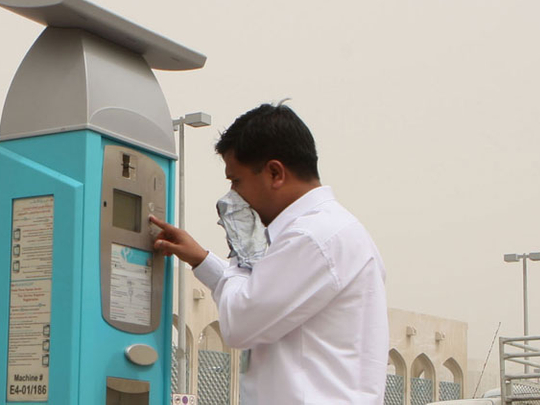
In the air
All flights operating from Dubai International Airport and Abu Dhabi were unaffected by yesterday's sandy conditions. An Etihad spokesman said all its flights were operating normally from Abu Dhabi. In Dubai, a spokesman for Emirates told Gulf News yesterday that its flights were operating according to schedule and were unaffected by the climatic conditions. And a spokesman for Virgin Atlantic said its flights were operating normally.
Behind the wheel
Blowing dust and gusty winds can make for difficult driving conditions. At all times, drivers should exercise caution and adjust according to the road conditions. If your visibility is limited, slow down. Use your hazard lights to keep your vehicle visible and give other vehicles plenty of room. It's also advisable to drive with your headlights on. Remember that gusty winds can make lighter vehicles swerve or move suddenly. Give plenty of notice of your intent by signalling, avoid making any sudden moves, and be prepared for surprises such as debris blown about by the winds.
Under the hood
Blowing sand can clog your air filter and affect your engine's performance. In extreme instances, blowing sand can also enter your fuel and brake lines, causing mechanical failure or worse. You should ensure that your air filter is changed regularly — at the same time as your engine oil is changed. After a dust storm, remove the filter and de-sand it by hitting it off your vehicle in much the same way as a carpet is beaten. Make sure your hoses are secure and their clips are tight. And top up your washer fluid levels.
Travelling: A class act
Dubai's Knowledge and Human Development Authority (KHDA) said schools have the flexibility to do what they deem necessary in adverse weather. "At the start of the academic year, schools submit a calendar to KHDA that complies with the stipulated 175 school days per academic year. If there is a change in the calendar... schools are obliged to keep the KHDA informed," Mohammad Darwish at the KHDA said. Schools can call a day off if need be and then make up for the lost time and lessons in subsequent days or weeks, he added.
Food for thought
Staff at restaurants are advising customers to sit inside as it's "unpleasant" outside and many have closed their outdoor areas. A spokesperson for Pierchic at Al Qasr, Dubai said: "Tables are not set outside... It's extremely windy, gusty and sandy. Our usual views have been spoiled." The restaurants facing the beach at JBR Walk have taken a similar decision. "Due to the weather conditions, we have closed outdoor terrace seating in all our ten restaurants today," said Mohammad Bu Ziadi at Jumeirah Zabeel Saray yesterday.
On the job
Work on most construction sites in the country went on as usual, even as the sandstorm reduced visibility drastically.Companies said they have taken extra precautions for the safety of workers, but many labourers seemed far from impressed. "We are working today as usual because there is not much difficulty in carrying out work normally, only the visibility level is a little low," said a project manager at Bin Belailah Construction. "If it gets worse and it affects any of our workers then we might stop work anytime."
It's not just dust
Dust is generally categorised as coarse, fine or very fine. Coarse dust generally only reaches the inside of the nose, mouth or throat. Fine dust can get much deeper into the sensitive regions of the respiratory tract and lungs. These smaller dust particles have a greater potential to cause serious harm to your health. Particles in dust storms tend to be coarse and do not pose a serious health threat to most people. But people with pre-existing breathing-related problems such as asthma and emphysema may be at risk.
Preventative steps
The following precautions can protect you and minimise the adverse effects of a duststorm: Spend as little time outside as possible; avoid strenuous exercise, particularly if you suffer from asthma or a breathing-related condition; stay indoors in air-conditioned living spaces if possible; and if you develop symptoms such as shortness of breath, coughing, wheezing or chest pain, seek medical advice.
Warning signs
The most common ailments during a duststorm are irritation of the eyes, nose and throat. The most vulnerable are infants and young children, the elderly and people with respiratory problems or heart disease. For these people, exposure to a duststorm may trigger allergic reactions and asthma attacks, cause serious breathing-related problems, or contribute to heart attacks. Prolonged exposure to dust can lead to chronic breathing and lung problems.


